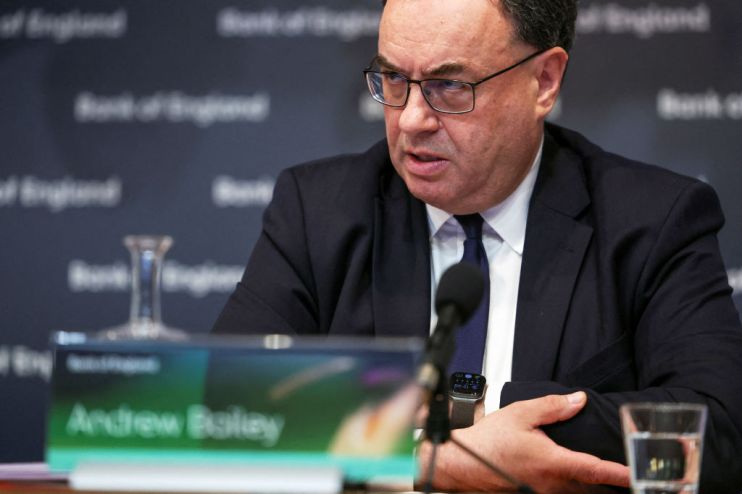Bank of England finally administers bitter medicine to treat inflation

The City has been ahead of the Bank of England’s thinking for some time.
Economists have for months known interest rates are set to stay higher for longer. Most expect them to peak at 5.75 per cent and stay there for, probably, at least a year.
Governor Andrew Bailey and co have woken up to that thinking.
A fresh hawkish impetus was injected into the monetary policy committee’s (MPC) interest rate decision statement yesterday.
“Some key indicators, notably wage growth, suggest that some of the risks from more persistent inflationary pressures may have begun to crystallise.”
“The MPC will ensure that Bank Rate is sufficiently restrictive for sufficiently long to return inflation to the two per cent target sustainably in the medium term, in line with its remit.”
These aren’t phrases used by a central bank sanguine about inflation or minded to cut borrowing costs any time soon. They were new additions, too.
The MPC said rates are already in “restrictive” territory, suggesting they may not want to over do it with more tightening and instead let the depressing effects of prior rate increases gradually sweep through the economy. Growth is already weak.
But upgrades to headline and services price growth and wage expansion in the Bank’s new forecasts underscore the risk of inflation sticking around.
Unemployment is up to four per cent and vacancies are curbing, which should ease salary growth. It seems consumers are also less willing to swallow higher prices.
Stalling growth, which the Bank yesterday admitted is largely the result of its rate rises, over the next three years will bring hardship and a natural inflation easing. Monetary policy is a bitter medicine.
Yesterday’s economic report underscored just how concerned the Bank is about accelerating wages.
At their current levels of 7.3 per cent across the UK economy and 7.7 per cent in the private sector, there is no way the Bank will reach its two per cent target.
It is not pay increases now that pose the biggest threat. Instead, if they lure firms into continuously raising prices, inflation expectations will get out of hand, so goes the textbook thinking. In such a scenario, the Bank will be forced into something drastic.
A 25 basis point hike, the 14th rise in a row, was trailed by the markets far in advance of the Bank’s meeting yesterday. As were additional rises in September and November. What about rate cuts?
“Since the MPC was formed in 1997, the average gap between the last rate hike and the first cut has been 10 months. The persistence of inflation may mean the gap is about 12 months this time,” Paul Dales, chief UK economist at Capital Economics, noted.
It seems the Bank too is rounding behind that view.